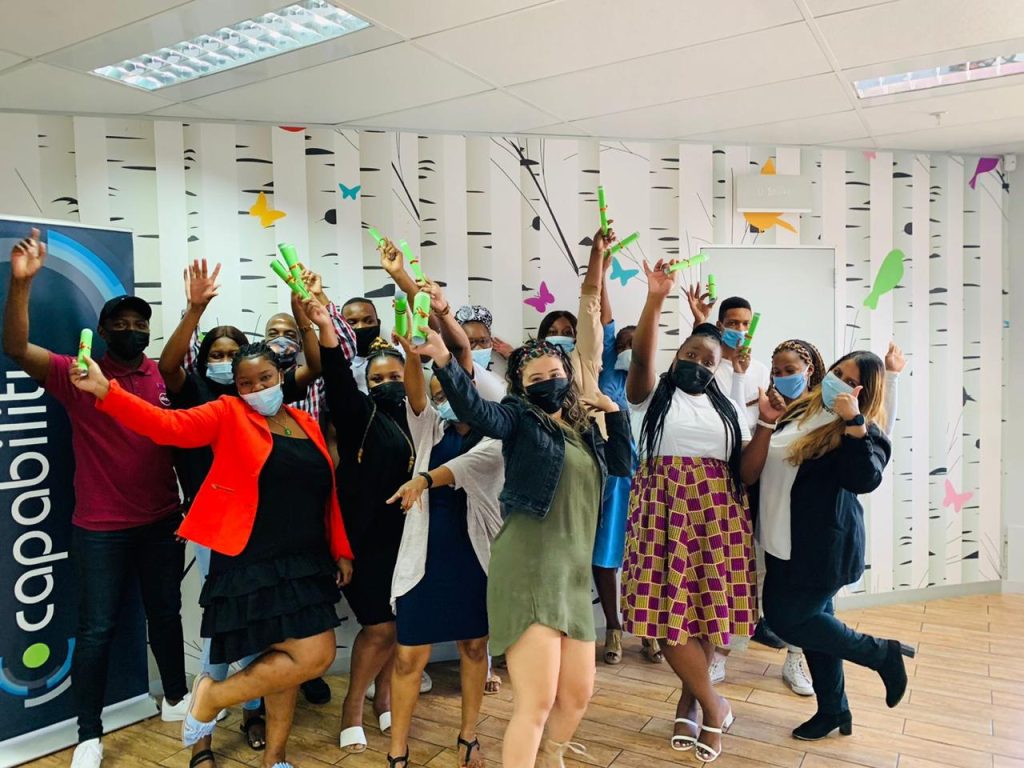Youth Day
Absa: A Force For Good In Youth Education And Development
We recognise that education and skills are key levers for enabling economic and social participation and inclusion, and that societies which have high levels of educational attainment are likely to exhibit greater competitiveness.
We also recognise that education and skills play a critical role in increasing employment, alleviating poverty and reducing inequality. Youth development is crucial in encompassing a notion of shared value, and in building stable and inclusive societies in which businesses and people can thrive.
Taking a demand-led approach, we partner with leading specialists to empower and equip young people with the training and tools they need for employment and entrepreneurship. Our initiatives are aimed at supporting the development of youths’ technical, vocational, social and digital skills in line with the requirements of Africa’s key growth sectors.
The challenges facing African youth
While Africa has the world’s youngest population, roughly one-third of Africans between the ages of 15–35 years are unemployed. The African Development Bank reports that of the 10–12 million youth that enter the workforce in Africa every year, only three million formal jobs are created.
Today, African youths face a confluence of challenges, including economic downturns, disruptions to education precipitated by the COVID-19 crisis, and persistent low employment rates. Unemployment is compounded by a mismatch between skills required within future-focused industries and educational capabilities.
In South Africa specifically, our youth account for 59.5% of the total number of employed people. In the first quarter of 2021, the unemployment rate of young people aged 15-34 years was 46.3%. This high rate is irrespective of education level, with the graduate unemployment rate at 40.3% for the 15–24 age group and 15.5% for the 25–34 age group. As a comparison, the unemployment rate of adults aged 35–64 years is 5.4%.
Stats SA also reports that of the 10.2 million persons aged 15–24 years, 32.4% (approx. 3.3 million) were not in employment, education or training, which effectively indicates that almost one in every three youths were disengaged with the labour market in Q1 2021.
Employability is strongly influenced by education and prior work experience, and employers prefer to hire candidates with a higher level of education and previous job experience. Given the lack of work experience of youth entering the job market, this further impacts their chances of sustainable employment.
It is essential to equip our youth with the full range of skills, knowledge and attitudes being sought by employers. We do this with a demand-led approach, and our initiatives support the development of their technical, vocational, social and digital skills, in line with the demands of Africa’s key growth sectors.
Matching skills to opportunities to build the future world of work
Youth development and education are crucial but complex. To add to the complexity, advancements in technology result in ever-changing job markets and socio-economic environments, meaning that educational institutions – and the educational landscape in general – need to stay alert and agile.
At the heart of what we do is matching existing opportunities to available skills, facilitating access to existing opportunities, and expanding employment opportunities.
The COVID-19 pandemic has had a devastating impact on the economy resulting in significant job losses, while at the same time some sectors of the economy continued to experience growth in the demand for skills. The Cross Skilling initiative seeks to enable Absa clients to build ‘bridges to employment’ for youth laid off from sectors that are shrinking, such as the hospitality and tourism sector, and move them into areas of high demand, including global business services.
The important role of TVET
We also recognise the crucial role that technical and vocational education and training (TVET) plays in developing mid-level skills, preparing youth for employment or self-employment, and providing a platform for further study. It is a critical sector because it is flexible, offering occupational programmes tailored to demand, and often delivered in partnership with specialist organisations, businesses and research bodies.
As the world of work evolves, the TVET sector can reskill young people and open pathways to new opportunities, remaining responsive to the needs of industry to accelerate youth transitions into the world of work.
We have provided funding for 15 TVET College students to be enrolled in the Installation, Repair and Maintenance (IRM) General Repairer Programme (also referred to as the Assistant Handyperson programme). The programme aims to equip the young students to access entry general maintenance roles within the infrastructure maintenance industry, and is delivered through a partnership comprising public TVET colleges, property industry associations and property companies.
ReadytoWork
Absa ReadytoWork is our flagship education programme to help young people prepare for the world of work. ReadytoWork provides access to world-class learning content, empowering young people with the training and skills they need to enhance their employability and entrepreneurial prospects.
The Absa ReadytoWork app is the latest addition to the programme. Through the app, users can complete four modules that cover essential money, work, people and entrepreneurial skills; access a high-quality CV; search for jobs; and watch insightful webinars by industry experts and leaders.
Focusing on the disability sector
As an organisation that embraces diversity and inclusion, we believe in the right of all learners to access quality education. This commitment is an integral part of the 2030 Agenda for Sustainable Development, which pledges that no child will be left behind.
It is thus important to focus on the educational participation of learners with disabilities, and Absa is committed to supporting disability-inclusive programmes. The reality is that many learners with disabilities are still not in school, or are not adequately supported.
To address the high unemployment rate amongst persons with disabilities, the National Institute for the Deaf (NID) offers accessible accredited occupational and artisan skills training and work placement services. Absa will support learners at the NID for the National Certificate End User Computing (NQF Level 3), enhancing access to quality tertiary education. Through the Financial Services Consumer Education Foundation, Absa will also support a programme empowering the blind and partially sighted with the knowledge and skills to manage their finances efficiently.
A rapidly changing, digital world
Our continent’s young people face a rapidly changing world. Advances in artificial intelligence, robotics and other emerging technologies are happening in ever-shorter cycles, changing the nature of the jobs and the skills needed to do them. Deepening knowledge and building skills for the next generation increasingly involves a focus on enhancing digital capabilities.
We have collaborated with WeThinkCode to fund training for 60 unemployed youths, opening pathways for them into the digital economy as generalist software developers specialising in cyber security, mobile app development and cloud computing. The two-year programme is delivered in Gauteng through a dual-training approach, comprising practical face-to-face institutional learning and workplace-based learning.
Bringing possibilities to life
Through these and other initiatives we envision a society in which young people are prepared with the education, skills, and experience needed for the workplaces of the future, and have access to opportunities for gainful, long-term employment and self-employment.
To face tomorrow’s rapidly changing world, we have made a very clear strategic commitment to bolstering youth education, skills development and employability, ensuring young Africans can reimagine their futures and bring their possibilities to life.





